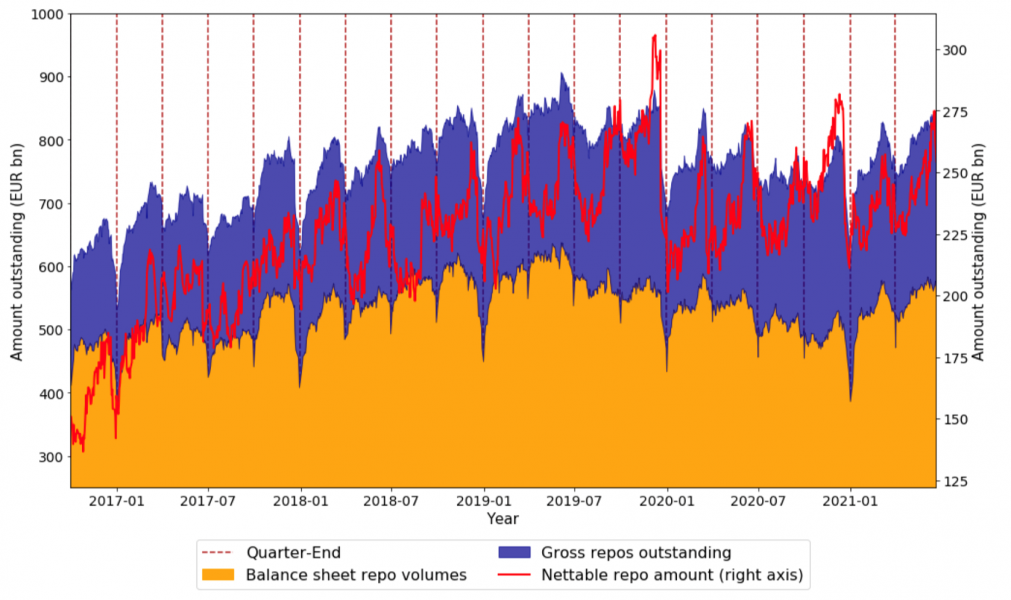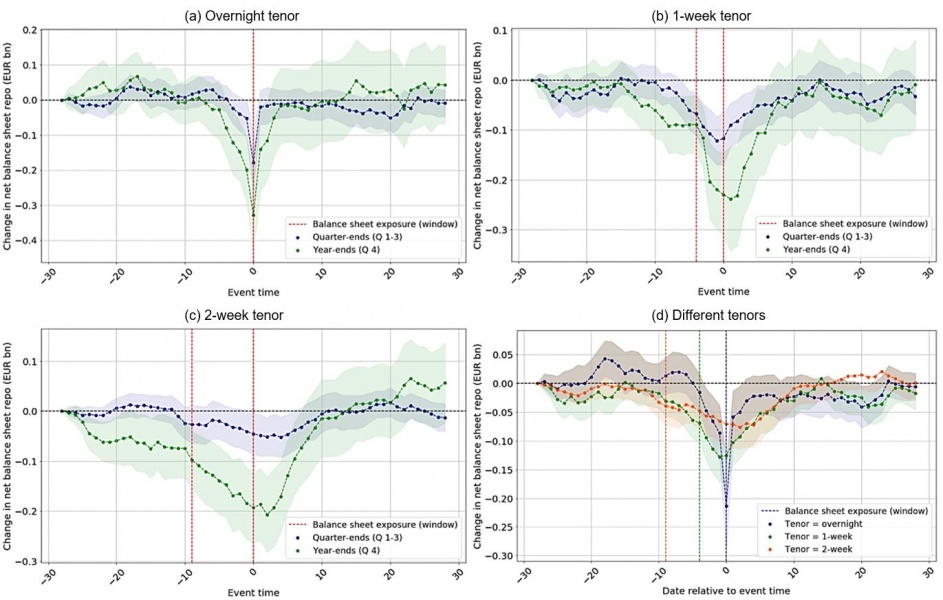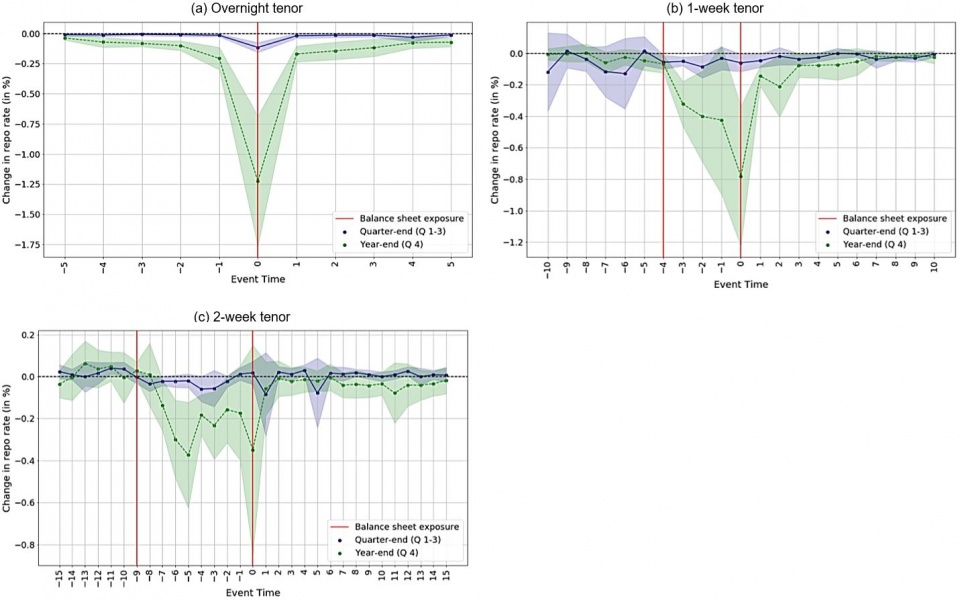References
Banegas, A. and M. Tase (2019). Reserve balances, the federal funds market and arbitrage in the new regulatory framework. Journal of Banking & Finance 118, 105893.
Bank for International Settlements (2018a). Annual Economic Report. Technical report, Bank for International Settlements.
Basel Committee on Banking Supervision (2019). Revisions to leverage ratio disclosure requirements. Bank for International Settlements.
Basel Committee on Banking Supervision (2018b). Statement on leverage ratio window-dressing behaviour. Bank for International Settlements.
Behn, M., G. Mangiante, L. Parisi, and M. Wedow (2022). Behind the scenes of the beauty contest: window dressing and the G-SIB framework. International Journal of Central Banking, Vol. 18(5): 302-342.
Brand, C., L. Ferrante, and A. Hubert (2019). From cash-to securities-driven euro area repo markets: the role of financial stress and safe asset scarcity. ECB Working Paper No. 2232.
Committee on the Global Financial System (2017). Repo market functioning. Technical report, Bank for International Settlements.
Du, W., A. Tepper, and A. Verdelhan (2018). Deviations from covered interest rate parity. Journal of Finance 73(3), 915–957.
Duffie, D. and A. Krishnamurthy (2016). Passthrough efficiency in the Fed’s new monetary policy setting. In Designing Resilient Monetary Policy Frameworks for the Future. Federal Reserve Bank of Kansas City, Jackson Hole Symposium, pp. 1815–1847.
Garcia, L., U. Lewrick, and T. Sečnik (2021). Window dressing systemic importance: evidence from EU banks and the G-SIB framework. European Banking Authority Research Paper No. 12.









